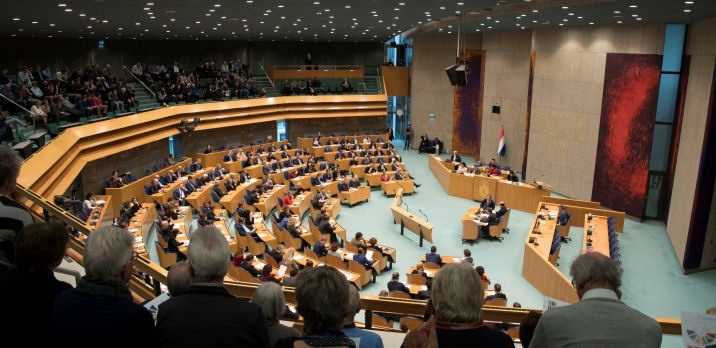Motion Dutch Parliament targets St. Maarten’s law enforcement

PHILIPSBURG – A large majority of the Dutch Second Chamber (107 out of 150 possible votes) supported the motion Van Dam on Tuesday – a decision that is bound to create confusion if not outrage about what could be interpreted as the next attempt by the Netherlands to take control in St. Maarten.
Van Dam’s motion asks the government to enter into talks with the government in St. Maarten “about a separation of management and authority in the maintenance of the legal order, to see whether the Netherlands could play a stronger part in the management function for a period of five years.”
State Secretary Raymond Knops advised against the motion when Chris van Dam – a member of the Christian Democratic Appèl (CDA) faction – tabled the motion last week Thursday because it goes against the division of responsibilities within the Kingdom and against the status of St. Maarten as an autonomous country. The only way to execute the motion is through consensus, according to the State Secretary.
 Van Dam expresses in his motion “serious concerns about the maintenance of law and order in St. Maarten, while its proper functioning is “a basic condition for the functioning of every society.”
Van Dam expresses in his motion “serious concerns about the maintenance of law and order in St. Maarten, while its proper functioning is “a basic condition for the functioning of every society.”
The motion targets the complete chain of maintaining law and order, so it is not just about the police force. The prison, for instance, would also fall under this definition.
The political responsibility for law enforcement will remain with the Minister of Justice and Chief Commissioner Carl John will remain at the helm of the police force.
Insiders have noted that taking over the management of the judicial chain – in fact: separating management from authority – implies that the Netherlands would have to provide resources in terms of people and funding.”That is the reason why Knops has advised against the motion and why the motion will not be executed.”
While there is no reaction yet from the government in Philipsburg, it seems unlikely that van Dam’s motion will be received with any kind of enthusiasm until it is clear what a possible agreement on this issue implies.
In the Netherlands the government has on a previous occasion taken control of the police, whereby mayors – as the local heads of police – kept the authority and the administration. It looked good on paper but in the end it came down to the good old principle of “who pays, decides” – thereby curtailing the authority of mayors over their local police force.
###
Related articles:
Opinion Piece by Hilbert Haar: “Razor-thin motivation”


























